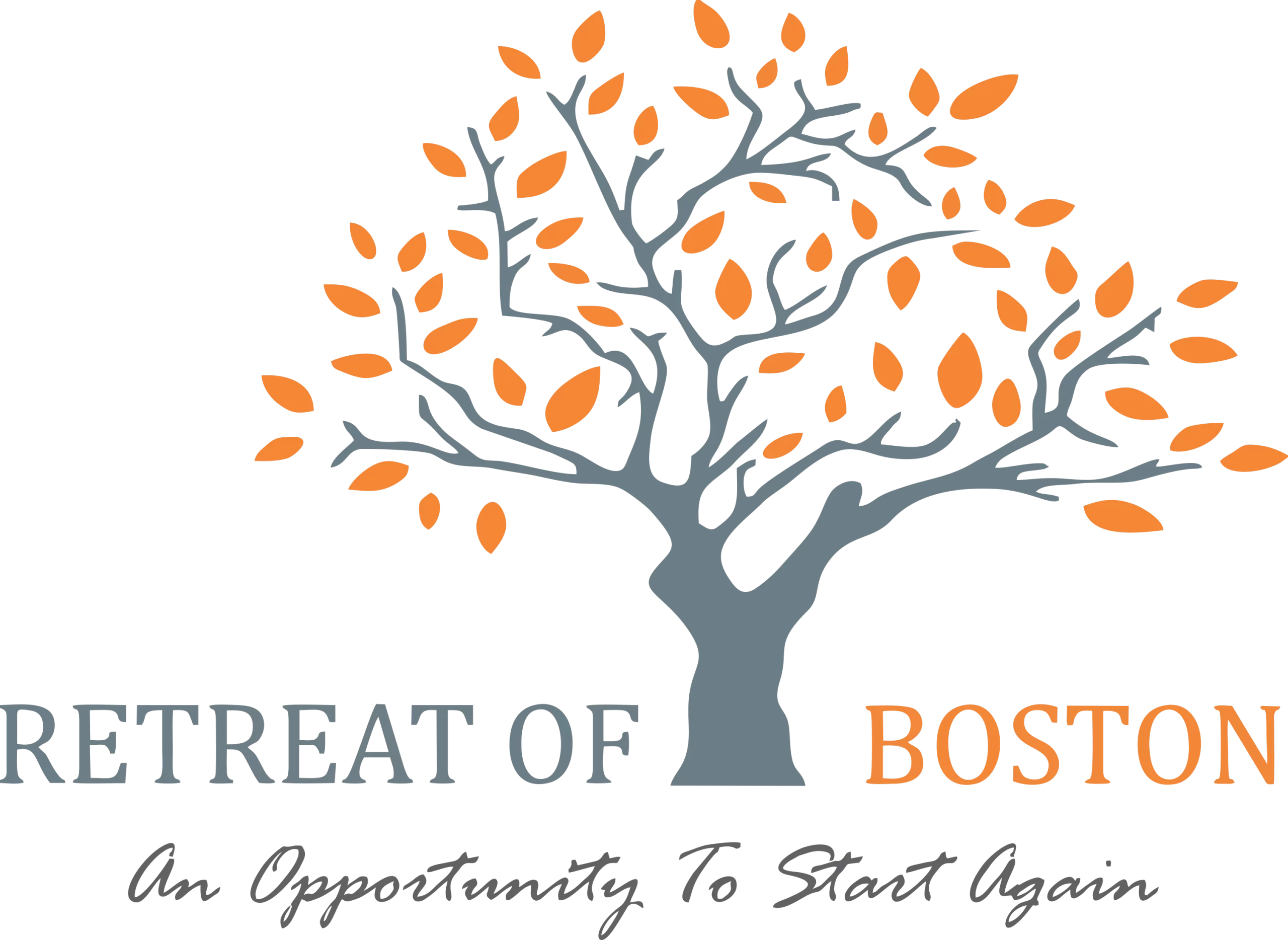Detoxing from alcohol is often seen as a physical hurdle—the body needs time to clear toxins, reset its systems, and adjust to life without alcohol. But what many people don’t realize is how much of the detox process is also emotional. Alcohol is more than just a substance; it often becomes a way of coping with anxiety, sadness, stress, and other mental health challenges. When you remove alcohol, those emotions don’t disappear—they can intensify during withdrawal, leaving individuals vulnerable to feelings of panic, insomnia, and emotional instability.
At The Retreat of Boston, we believe detox is about healing the whole person—not just their physical dependence, but their emotional well-being too. As your trusted provider of alcohol detox anxiety Boston, our small-scale facility creates safe spaces for clients to address and stabilize both the physical and psychological symptoms of withdrawal. In this blog, we’ll break down why alcohol detox requires emotional care, highlight common challenges like anxiety and emotional withdrawal, and explore how compassionate support can make the difference between struggling and succeeding in early recovery.
Alcohol Detox Isn’t Just Physical — It’s Emotional Too
Alcohol withdrawal doesn’t affect the body alone—it impacts the way we think, feel, and process emotions. Many individuals who struggle with dependency use alcohol to cope with anxiety or life stressors. Over time, alcohol replaces the brain’s ability to calm itself naturally, creating dependence not just on the substance but on its emotional effects.
Once abstinence begins and alcohol leaves the system, the brain is forced to recalibrate. Without its usual coping tool, emotions may feel overwhelming during detox—especially for those who’ve leaned on alcohol to manage anxiety or depression. At Retreat of Boston, we see detox as a holistic process that addresses both physical and emotional symptoms, providing expert care for emotional withdrawal after alcohol detox Boston.
Common Emotional Challenges During Detox
Most people expect symptoms like nausea, sweating, or shaky hands during alcohol withdrawal. But the physical symptoms are only part of the experience. Detox from alcohol often triggers emotional and psychological challenges, too, many of which are just as difficult to navigate.
Anxiety and Panic
Alcohol is a depressant that suppresses the brain’s stress signals. This often makes it feel like a “shortcut” to calmness when life becomes overwhelming. During detox, the brain swings to the other extreme, producing heightened stress hormones and overactivity. The result? Intense anxiety or even panic attacks.
Symptoms include:
- Racing thoughts
- Tight chest or shortness of breath
- A sense of dread or overwhelming fear
For many individuals, anxiety during detox can feel like it’s spiraling out of control, making psychological stabilization essential for recovery.
Insomnia
Alcohol’s sedative effects often mean people use it as an aid to fall asleep. Detox disrupts the brain’s sleep-wake cycle, leaving individuals restless or unable to sleep at all. Insomnia during detox can last for several days, and without proper care, it can worsen anxiety and irritability.
Mood Swings and Irritability
Alcohol withdrawal sends the brain’s neurotransmitters into overdrive, creating unpredictable mood shifts. Individuals often experience irritability, frustration, or sadness during early detox, sometimes feeling out of control or unfamiliar to themselves.
Depression or Hopelessness
Many people who drink heavily use alcohol to mask depression or deeply rooted trauma. Detox strips away that coping mechanism, often resulting in overwhelming feelings of sadness, guilt, or hopelessness. Stabilizing these emotions is critical to preventing relapse or deeper mental health struggles.
Alcohol Detox Psychological Support: Why It’s Essential During Recovery
Detoxing without addressing emotional health can leave individuals at greater risk for relapse. Physical withdrawal symptoms like nausea or shaking may pass within days, but emotional challenges like anxiety or depression can persist far longer—and without help, they can escalate into post-abstinence distress.
At Retreat of Boston, our approach to alcohol detox psychological support Boston combines medical care, therapy, and emotional support to stabilize clients at every level. We understand that feeling emotionally overwhelmed during detox doesn’t mean detox isn’t working—it means the brain is healing and learning to function without alcohol. With proper guidance, clients can navigate this challenging time and come out stronger on the other side.
How Retreat of Boston Supports Emotional Withdrawal From Alcohol
Healing isn’t just about the clinical side of treatment—it’s also deeply influenced by the environment in which that care takes place. At The Retreat of Boston, our boutique detox facility in Boston, MA blends medical stabilization with emotional support, creating a space where clients can feel safe, understood, and fully cared for during one of the most challenging stages of recovery. By combining privacy, personalized attention, and calming amenities, we help clients move through detox in a way that feels manageable and grounded rather than overwhelming.
Therapy and emotional support are central to our approach. Licensed therapists and counselors work closely with clients through both individual and group sessions, helping them process fear, anxiety, and confusion that often arise during early withdrawal. Addressing emotions in real time not only builds resilience but also lays the groundwork for healthier coping strategies after detox. This is complemented by our 24/7 medical monitoring, which ensures safety during both physical withdrawal and the emotional fluctuations that accompany it. Withdrawal symptoms—especially those related to alcohol or benzodiazepines—can escalate quickly, and having clinical staff nearby provides reassurance and rapid intervention when needed.
Our environment is intentionally designed to reduce stress and promote emotional calm. Private rooms allow clients to rest, reflect, and regain a sense of control, while shared lounges and outdoor spaces offer opportunities for quiet connection or peaceful solitude. Mind-body wellness is also supported through amenities like gym access and recreational activities, such as our video game spaces. Movement and healthy distractions can significantly reduce tension, improve mood, and help clients stay engaged throughout detox. As clients stabilize, our team also provides dual diagnosis support through individual counseling to address underlying mental health concerns such as depression, trauma, or anxiety—ensuring emotional healing continues beyond detox and builds a strong foundation for long-term recovery.
Healing Doesn’t Stop When Detox Ends
For many individuals, the emotional and psychological challenges that accompany alcohol addiction don’t disappear just because the physical withdrawal phase is over. Anxiety, depression, stress, and unresolved trauma often become more noticeable once the body is no longer numbed by alcohol. This is why mental health after detox in Boston becomes a critical part of sustaining long-term recovery. Without adequate support, individuals may feel overwhelmed by these resurfacing emotions, increasing the risk of returning to alcohol as a coping mechanism. Ongoing mental health care and connection to community resources ensures clients develop the tools, coping strategies, and confidence needed to navigate life without relying on substances.
At The Retreat of Boston, healing continues well beyond detox. We understand that early recovery is a vulnerable time, and long-term success depends on addressing the mind just as much as the body. Our continuing care options include individual therapy, cognitive and behavioral approaches, trauma-informed care, and holistic practices that support emotional regulation and stress management. Clients learn how to identify triggers, create healthy boundaries, build resilience, and rebuild a balanced lifestyle that supports sobriety.
We also offer structured relapse-prevention planning and lifestyle coaching to help clients transition back into their daily routines with clarity and stability. Whether someone is returning to work after treatment, reconnecting with family, or rebuilding their self-esteem, our post-detox support equips them with personalized strategies for staying grounded and motivated. By combining mental health treatment, skill-building, and supportive accountability, The Retreat of Boston helps clients continue healing long after detox ends—empowering them to live with purpose, confidence, and lasting sobriety.
Detox as Emotional Healing: Recovery That Goes Beyond the Physical
Detox isn’t just about clearing alcohol or drugs from the body—it’s the beginning of an emotional reset. For many individuals, substances like alcohol and benzodiazepines become tools for coping with stress, anxiety, trauma, or overwhelming life transitions. When those substances are removed, emotions that were once numbed can come rushing back, making detox a deeply personal and psychological experience. This is why emotional healing is just as important as physical stabilization during early recovery. At The Retreat of Boston, we create a supportive environment that helps clients reconnect with themselves and learn new ways to manage life without relying on substances.
Alcohol and benzodiazepines (such as Xanax, Ativan, or Valium) present unique emotional challenges during withdrawal. Alcohol often masks symptoms of anxiety and depression, and once detox begins, these symptoms can intensify without proper clinical support. Benzodiazepines, on the other hand, directly affect the brain’s calming mechanisms, and withdrawal can involve intense panic, mood swings, insomnia, or emotional hypersensitivity. Because these substances are so often used to self-medicate emotional pain, detox must involve more than medical management—it must include emotional stabilization, reassurance, and therapeutic grounding to reduce distress and prevent relapse.
At The Retreat of Boston, we specialize in providing compassionate, trauma-informed care that supports both emotional and physical healing. Our clinicians and therapeutic staff are trained to help clients navigate the waves of anxiety, fear, sadness, or uncertainty that can arise during alcohol and benzodiazepine withdrawal. Clients receive individualized attention, comforting interventions, and evidence-based therapies that teach them how to self-soothe, process emotions, and establish healthier coping mechanisms. By giving clients a safe space to feel and heal, we help them begin rebuilding their internal resilience—one moment at a time.
The early stages of recovery can be overwhelming, but healing is absolutely possible with the right support and structure. Through continuous emotional monitoring, therapeutic guidance, and a calm, nurturing environment, The Retreat of Boston shows clients that recovery is not just about surviving detox—it’s about growing from it. We help individuals rediscover their ability to cope, connect, and live fully without substances, providing the foundation needed for long-term sobriety and emotional well-being.
Contact Retreat of Boston for Compassionate Medical & Emotional Detox Care Today
Are you or your loved one ready to take the first step toward healing and freedom from addiction? Don’t wait until emotional struggles make sobriety feel overwhelming—early intervention through a professional detox program can stabilize both your body and mind, giving you the clarity and strength needed to move forward. The sooner you begin, the sooner you can reclaim control, rebuild confidence, and break the cycle that’s been weighing you down.
At The Retreat of Boston, we specialize in alcohol detox anxiety Boston treatment and compassionate emotional support that helps clients feel safe during one of the most vulnerable stages of recovery. Our team understands the fear, uncertainty, and stress you may be facing, and we’re here to make sure you never face them alone. From medical stabilization to emotional grounding, we tailor every step of detox to your unique needs, ensuring you feel supported from the moment you arrive.
Reach out to our admissions team today to ask questions, verify insurance, or begin the intake process. Let The Retreat of Boston guide you through detox with expert care, genuine compassion, and unwavering support—so you can step into the next chapter of your life with stability, hope, and the confidence that lasting recovery is possible.




